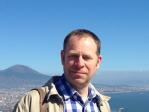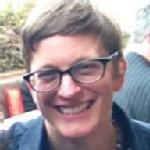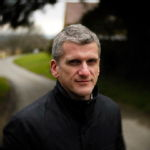MA in Critical and Cultural Theory

Critical inquiry in modern literature and culture
Our Critical and Cultural Theory MA will train you with the analytical tools to respond to, understand, theorise, and critique the literary and cultural artefacts of the modern world.
You will encounter and interrogate the perspectives informing the Humanities today: Feminism, Marxism, Ecocriticism, Psychoanalysis, Medical Humanities, World-Systems Theory, Postcolonialism, Digital Humanities, Cultural Studies, and many more.
In our core module, Critical Theory Today, you will immerse yourself in the latest theoretical questions through reading and discussion. You will then choose from a wide range of modules that span a variety of critical perspectives and approaches.
We lead the field in research in critical and cultural theory and our staff have published on many of the most pressing debates of our time, including the Energy Humanities, environmentalism, the role of the University in modern society, queer and feminist theory, and the place of literature in the public sphere.
Our warm and vibrant research community is one of the largest in the UK, with around 110 postgraduates every year. We offer a full calendar of seminars, symposiums and conferences, with a busy diary of speakers from around the world. We organise conferences and public lectures on a number of critical issues, such as Petrocultures 2018, and currently lead the international Critical Theory Network that brings together researchers from the Department with colleagues at Paris IV–Sorbonne, the Catholic University in Lisbon, and the University of Zurich.
We also offer funding for postgraduate study, and career development support during your time here. By the end of the course, you'll be well-positioned for further study or employment.
Key facts
Qualification: Master of Arts (MA)
Duration: 1 year full-time, 2 years part-time
Next intake: October 2025
Autumn term:
- Research Methods
- Core module: Critical Theory Today
- 1 x 30 CAT modules, assessed by coursework*
Spring term:
- 2 x 30 CAT modules, assessed by coursework*
Spring/Summer terms:
- 16,000 word dissertation (worth 60 CATS)
*You can take one 30 CATS module from outside of the department, including the Institute for Advanced Teaching and Learning (IATL).
Modules on offer for the year 2022–2023 include:
The Development of English Drama
Petrofiction: Studies in World Literature
World Literature and the Anthropocene
Critical Theory, Culture, Resistance
Fundamentals of World Literature
Theory from the Margins: Postcolonialism and the Radical Tradition
Charles Dickens: Novels, Journalism & Adaptation
Core module
Critical Theory Today: introduces students to the newest developments in critical theory. The module is team-taught by a number of specialists in the field.
Optional modules
These vary from year to year, but the list below gives you a flavour of the kinds of topics likely to be open to you:
- Feminist Literary Theory: Consider some of the most important debates and trends in feminist literary theory over the last few decades. This module explores the intersections of academic and popular, intellectual and activist dimensions of feminist literary theory; we also place emphasis on the articulation of feminist literary practice with representations of race, sexuality and class.
- Gothic: Gothic fiction is marked by uncertainties about power, law, class, gender, sexuality and religion, holding up an uncanny mirror to the political and religious anxieties of its times. In this module you will peer into the dark recesses of nineteenth-century Gothic, and through it explore the period’s contradictions and anxieties.
- Fundamentals of World Literature: This module introduces you to the terminology, claims, and points of difference in the debates surrounding World Literature and world-systems theory. Discover ways in which the current disjunction between cultural studies, modern languages, and postcolonialism can be coherently bridged through comparative analyses of a society's incorporation into the capitalist world-economy.
- Petrofiction: Studies in World Literature: Explore the literature of energy and natural resources through the study of various genres from around the world. Here you will take in theatre, cinema, documentary and photography, all with oil and its social meanings at their core, and interpret them within the wider rubric of ‘petroculture’ in order to reveal international patterns in petroleum's form and content.
- The Development of English Drama 1558-1659: Trace the development of the drama of the early modern stage, from the accession of Elizabeth I to the end of the English republic. Investigate how the playing conditions of the time were affected both by the physical resources of the stage and the political contexts in which these works intervened. Take note of early modern literary criticism to discover how playwrights interacted with these ideas in their work.
- The Caribbean: Reading the World-Ecology: This module aims to familiarize students with ecologically-oriented approaches to Caribbean literature, as well as with the critical debates surrounding world literature, ecocriticism, and environmental history. In particular, you will explore the concept of world-ecology and consider its potential as a methodology for reading texts from across the Caribbean archipelago.
- Drama and Performance Theory: Examine drama and performance theory, by exploring and discussing some of the methodologies, debates and conceptual approaches to drama and performance.
- World Literature and the Anthropocene: Get to grips with the debates surrounding the ‘Anthropocene’ as a way of revisiting conventional interpretive frameworks and categories, including questions of periodisation, comparative methodology and the ‘worlding’ of literary study.
Outside modules
You may also take one 30 CATS module from outside the Department as part of your course.
For example, you might want to study a topic from the Warwick Writing Programme, History, Film, Modern Languages, or Philosophy, or the modules offered by the Institute for Advanced Teaching and Learning (IATL).
Dissertation
Alongside your four modules, you also get the chance to pursue your own distinct research interests in the dissertation (16,000 words). This is an opportunity to develop a new idea from one of your modules into something longer. Alternatively, you could write on a subject or a figure that has always fascinated you.
You can write about anything, within the broadly-conceived boundaries of 'critical and cultural theory', although your subject must fall within the interests of an available member of the teaching staff and must be feasible in terms of resources to be accepted.
People often use their MA dissertations as springboards to PhD projects, and have sometimes gone on to publish parts of their work in scholarly journals.
You will attend a series of workshops in the autumn term designed to help shape your general ideas into a feasible proposal. You will submit a full proposal towards the end of the autumn term and be assigned an appropriate supervisor. You will begin preliminary work on your dissertation in spring.
The modules mentioned above may be subject to change. Please read our terms and conditions for more detailed information.
Our staff involved in this course are listed below. While you're writing your dissertation you might work with any relevant academic in our department.
Professor Daniel Katz teaches on the English and Comparative Literary Studies program. His research mostly focuses on modernism and its aftermath extending to the present day, with a special interest in poetry and poetics. His latest book is The Poetry of Jack Spicer (Edinburgh UP, 2013) and recent and forthcoming articles and chapters include "Translation and the American modernist novel " in The Cambridge Companion to the American Modernist Novel, and "Jack Spicer" in The Cambridge Companion to American Poetry, along with pieces on Samuel Beckett, Ezra Pound, Charles Olson, William Carlos Williams, Ben LernerLink opens in a new window, and Peter Gizzi. He has been an Executive Board member of the Samuel Beckett Society, and co-director of Warwick's Centre for Research in Philosophy, Literature and the Arts. He is the Founding Editor of the book series "Bloomsbury Studies in Critical Poetics" and is currently at work editing a volume of Jack Spicer's uncollected poetry, prose, and drama—much of which is previously unpublished in any form—for Wesleyan UP. Daniel welcomes applications from potential doctoral students in modernism (especially Beckett and Pound) and contemporary avant-gardes, American poetry, twentieth and twenty-first century poetry and poetics, critical theory (particularly psychoanalysis, translation and multilingualism, and the work of J. Derrida), and his other areas of expertise, and looks favourably on comparatist problematics and work across languages (especially French, Spanish, and Italian) or national literatures.
"My research interests include medical humanities, especially in relation to psychology, psychopathology and ageing; Samuel Beckett; English and French modernism; modern British and Irish theatre; Irish Studies and Anglo-Irish writing; the cultural history of celebrity; and the writing of death (epitaph, obituary, graveyard poetry). I have published a monograph on Samuel Beckett, and articles and book chapters on Beckett in relation to a range of subjects, as well as on the politics of translation, Black British theatre, Sarah Kane, and Jean Genet.
I am a partner on a Norwegian Funding Council project, Historicizing the Ageing Self, based at the University of Bergen, Norway."
"My interests lie in the materialist recasting of comparativist methodology in order to explore the origins of modernism in the C19 world-literary system, its development in the C20 moment of ‘three-worlds’ culture, and its recurrent crises in the wake of the postwar Long Boom. In contrast to most work in world-literary studies, I give special emphasis to poetry as a privileged medium for construing the challenges of global consciousness, primarily in poetry’s manifestation as entailing a specific form of address. These interests are reflected in three current studies: World Literature and the Origins of Modernism, which attempts to map the emergence of a C19 global imaginary in poetry through studies of Whitman, Baudelaire, Martí and others; United Nations Literature, a comparative examination of international literary relations in the aftermath of the founding of the UN; and Post-Capitalist Aesthetics, a preliminary survey of the cultural prefigurations of a world order beyond the present era of neoliberal capitalism. Articles on Whitman, Hawthorne, Frank O'Hara, C21 graphic narrative, the history of the Frankfurt School and post-work and ambient aesthetics."
Research expertise
Our department was ranked first in the country in the Research Excellence Framework 2014, and the 2017 QS World University Rankings placed us in the top 20 English departments in the world.
Our staff are renowned experts across a broad spectrum of specialisms.
- See our staff profile pages for more information
- See our current PhD and MPhil students to give you a sense of the projects currently being pursued in our department.
Thriving research groups
Our Department is home to several thriving research groups, including Comparative Religions and Literatures (CoRAL) and the Warwick Research Collective (Materialist Studies in World Literature). We have close ties to the Centre for Philosophy, Literature and the Arts, the Eighteenth Century Centre, the Centre for the Study of the Renaissance, the Yesu Persaud Centre for Caribbean Studies, and many other ongoing research projects and collectives.
International conferences
Our Department is regularly home to major national and international conferences, most recently The Descent into the Classical Underworld, Imperial Cultures of the United States, and Peripheral Postcolonialities.
Large library at the heart of campus
The University library's Rare Books and Special Collectionsinclude early editions of Smollett, Swift, Scott, and Goethe, and is home to the Modern Records Centre.
Regional and national connections
The University campus is approx. 15 miles from Stratford-upon-Avon, home to the Royal Shakespeare Company and the largest publically-available collection of Shakespeare material in the world. We are also just over an hour from London, home to world-class museums, galleries, and the British Library - the largest library in the world.
A lively graduate culture
You will get a chance to present your work at our annual Postgraduate Symposium. Our graduate students are an important part of our teaching faculty, and for those progressing well with their research, there are opportunities to gain valuable teaching experience across a variety of undergraduate modules.
A postgraduate English degree is a key route into Higher Education, research, and academic careers, which often require postgraduate qualifications. As part of English’s postgraduate community, you will join a department that values its graduate students and encourages them to become part of our thriving research culture.
The average mean salary for all postgraduates from Warwick is £39,500 per annum, and 93.7% are currently in work and/or further study (Destinations of Leavers from Higher Education).
Recent graduate destinations for postgraduate courses:
Barclays Bank; Civil Service Ministry of Justice; Corus Hotels; Coventry University; Deloitte; International Institute for Environment and Development; NewsQuest Media Group; Oxfam; Pan Macmillan; PepsiCo; Royal National Lifeboat Institution; Royal Opera House; Royal Town Planning Institution; TeachFirst; The Burlington Magazine; The Sun; The Times; University of Worcester; V&A Museum; Yale University Press.
Positions of our recent graduates from postgraduate courses:
Account Executive; Business Consultant; Community and Events Fundraising Assistant; Compliance Office; Content Executive; Editorial Assistant; English Teacher; Foreign Rights Assistant; Workshop Director; Writer and Researcher; Innovation and Enterprise Consultant; International and Business Performance Assistant; Journalist; Junior Account Executive; Marketing Manager; Publishing Assistant; Research Analyst; Social Media Analyst; TV Researcher; TV Runner, University Lecturer.
What personal and professional development opportunities and support are available?
- One-to-one academic mentoring support from your dissertation supervisor and personal tutors
- Support from the Centre for Arts Doctoral Research Excellence
- Opportunities to publish in PG student journals (Exchanges and Feminist Dissent)
- Postgraduate student conferences (Postgraduate Symposium, PG Arts Research Festival, and Café Academique, Arts Out: Annual Faculty of Arts Festival)
- Student societies (including the Warwick Literature Society)
- Masters Skills Program, Research Student Skills Program, Transferable Skills Program
- Arts Faculty workshop series
- Project, research and placement funding
Entry Requirements
65% (or equivalent) in an undergraduate degree in English literature or a related degree. All applicants are encouraged to provide a writing sample to demonstrate suitability for the course and in order to be eligible for any available departmental bursaries.
English Language Requirements
Band CLink opens in a new window
IELTS overall score of 7.5, minimum component scores of two at 6.5/7.0 and the rest at 7.5 or above.
Course Fees
See Student Finance
Scholarships
For information about how to fund your master's degree please consult our own graduate funding page and Postgraduate Taught Financial Support page.
Additional Course Costs
Students are expected to buy the set primary texts for each module they study.
Find out more about fees and funding on the University website.
All applicants should upload a writing sample of up to 3,000 words with their application. This will be used for the purposes of admission and for Departmental funding competitions.
We encourage all applicants to apply during the spring. International applicants should apply before June to ensure enough time for visas and processing. We accept home applicants through the summer.
If you have any queries about whether you are in time to apply, please contact the convenor.
See how to apply for a postgraduate course at Warwick:
You may also like to see our Admissions Advice for International Students

 Professor Dan Katz
Professor Dan Katz
